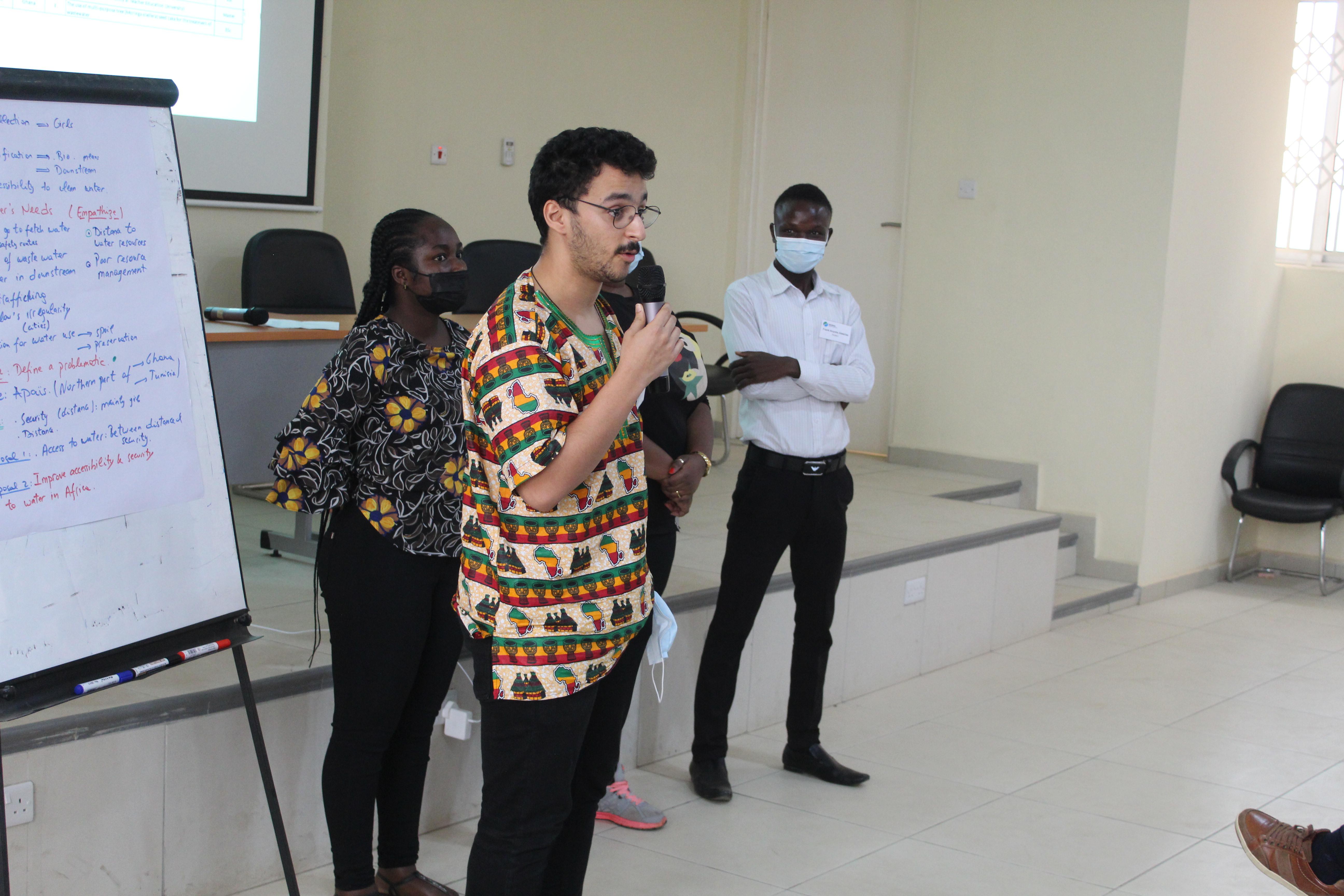Teaming up to solve water-related problems in Ghana

2022 EPFL/Unknown- CC-BY-SA 4.0
Two EPFL students, Nour Ghalia Abassi and Mohamed Ali Dhraief, spent ten days in Ghana working on water-related projects.
After a five-hour drive from Ghana’s capital city Accra, Nour Ghalia Abassi and Mohamed Ali Dhraief finally reached Kumasi. Abassi, a PhD student in artificial intelligence, and Dhraief, a Master’s student in data sciences, were there for the Network for Water and Life (NEWAL) program, sponsored by the swissuniversities SUDAC program.
For a little over a week last February, 40 participants from Switzerland, Ghana, Liberia, Benin, Cameroon and Côte d’Ivoire gathered at the Kwame Nkrumah University of Science and Technology in Kumasi, Ghana’s second largest city, to create sustainable development projects. “When we arrived, we didn’t know exactly what we were going to do,” says Abassi. “Only that we needed to come up with an idea related to water.”

Abassi and Dhraief were the only EPFL students selected for the NEWAL program. Two researchers from EPFL’s School of Engineering, Denis Gillet and Isabelle Vonèche-Cardia, went with them as trainers in digital and humanitarian issues, respectively. “The goal is to get the students out in the field so they can learn what sustainable development means at the local level. To do this, they spoke with stakeholders, conducted surveys and collected information,” says Vonèche-Cardia. “They then drew on what they learned in the classroom – and their own skills – to propose practical solutions to the challenges they identified.”
Each morning, the students attended theory classes on entrepreneurship, water-related problems, the humanitarian experience and civil engineering. They also went on visits to the city dump, a water filtration station and a place where informal laborers work in unhygienic conditions, and they met with the residents of a native village. When they returned to the university, Abassi and Dhraief each sat down with an African partner to outline a project.
Connecting septic tanks
Abassi and her partner set up a septic tank sensor system. “In Ghana, septic tanks frequently overflow. The wastewater then contaminates the groundwater, which creates a serious pollution problem,” she says. “Our sensors monitor the waterline and, when it reaches a certain level, send an alert through a mobile app. That way, families can avoid overflows.” She adds: “When we arrived in Ghana, I didn’t know anything about this problem, but I’ve become passionate about it. In the evenings, my partner and I would still be discussing it in the hallways with the professor who was advising us.”
Monitoring the river current
Dhraief designed a sensor system to be placed in the river near the village. “Every morning, the children have to go there and get water before school,” says Dhraief. “But the villagers told me that kids sometimes drown because of the current.” Using the sensor system, a villager receives information about the river current and, if it is too strong, warns the families not to send their children. “We went to Ghana with certain assumptions and then, when we got there, we realized things were nothing like we had imagined,” he says. “We now see how important it is to go into the field and speak with the local people to truly understand their needs.”
In order to finalize their projects, the two students must now apply for a grant. They will hear back in August.







